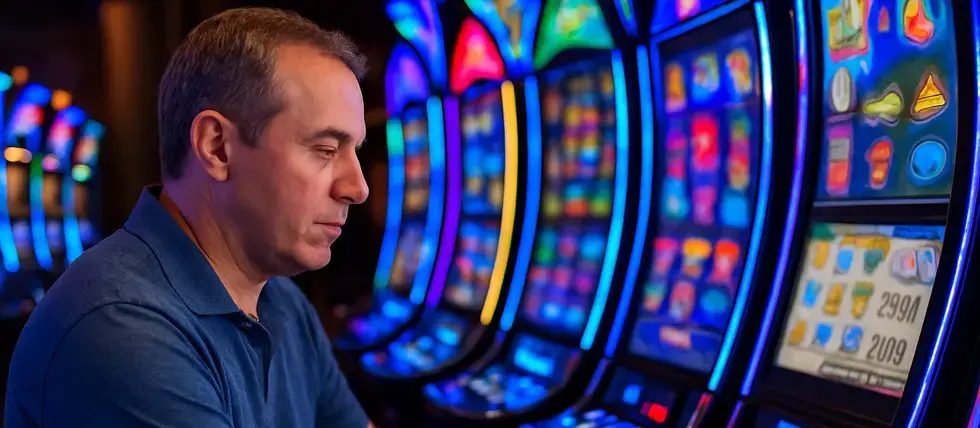Ex-Eastville Officer Pleads Guilty to $831K Fraud to Feed Gambling Habit
A former Virginia police officer has admitted to defrauding people he knew of more than $831,000 to support a severe gambling addiction.

Jerry Keith Brady Jr. pleaded guilty to one count of money laundering and one count of wire fraud before Judge Lawrence R. Leonard in the U.S. District Court for the Eastern District of Virginia. According to court filings, Brady orchestrated a scheme in which 13 victims made 33 transfers into his accounts after he falsely claimed he was about to receive a large inheritance and would promptly repay the loans.
Prosecutors say the inheritance claim was fabricated and that most of the money was never returned. Victims signed promissory notes with Brady that included repayment deadlines, but those dates largely passed without payment; the court record indicates Brady repeatedly sought additional funds as his debts mounted.
Related: Two Men Arrested for Multi-Million Dollar Casino Ponzi Scheme
Fraud Scheme and Victims’ Losses
The fraud unfolded on Virginia’s Eastern Shore and involved a mixture of in-person solicitations and electronic transfers. Court documents say Brady funneled the money into personal accounts and then used it on gambling activities, including so-called "skill machines" found in local gas stations, trips to brick-and-mortar casinos, and online sports-betting platforms.
“The charges currently involving Mr. Brady are personal in nature and are not related to his professional duties or employment with the Town of Eastville. The Town remains committed to transparency and integrity in all personnel matters. No further comment will be provided at this time”, a town statement read.
Legal specialists note that schemes which exploit personal relationships can leave victims particularly vulnerable because trust short-circuits the usual verification that accompanies unfamiliar lenders. In federal court, Brady’s guilty plea sets the stage for a sentencing hearing on February 19, 2026, when Judge Leonard will determine a prison term and restitution amount.
More Regulation News
The Psychology and Penalty of Gambling Fraud
While the courtroom record focuses on the financial crimes, addiction experts say the behavior described aligns with patterns seen in severe gambling disorder: chasing losses, escalating bets, and sidelining other obligations. An addiction counselor who asked not to be named said, "Compulsive gambling shifts priorities away from long-term stability toward immediate relief. People with this disorder often rationalize borrowing from friends and family because they believe the next win will solve the problem – but that win rarely comes. Treatment and structured supervision are essential components of recovery, and without them, the cycle usually worsens."
Federal charges of wire fraud and money laundering carry the prospect of lengthy sentences and significant fines. Beyond criminal penalties, Brady also faces civil exposure: victims can pursue restitution through the criminal sentencing process, and they retain the right to file separate civil suits to recover losses if restitution does not fully compensate them.
The case also raises questions about the availability and oversight of skill-based gaming machines in retail locations and the resources available for problem gambling in rural communities. Regulators in Virginia and advocacy groups have increasingly scrutinized how electronic gaming devices are marketed and sited, particularly where addiction resources are scarce.
Brady’s sentencing hearing in February will clarify the criminal consequences and potentially set out a restitution schedule for the people who lost money. Until then, the investigation and the court record provide a cautionary example of how personal relationships and untreated addiction can combine to produce significant financial harm.
Further Reading and Precedent
Victims of financial fraud tied to addiction often pursue a combination of criminal restitution, civil claims, and debt-relief counseling. Legal advocates recommend documenting all transactions, saving promissory notes and communications, and contacting a licensed attorney to explore restitution and civil recovery options. National problem-gambling organizations can provide referrals to treatment and local support services for those affected indirectly by another person’s gambling disorder.
RELATED TOPICS: Regulation
Most Read
BETBY Launches Always-On Virtual American Football and Expanded Bet Builder Markets
Feb 04, 2026Must Read
 Interviews
Interviews
Exclusive Interview: Levon Nikoghosyan Shares AffPapa Winning Formula for Successful iGaming Events
Dec 03, 2025 Interviews
Interviews








Review this New Post
Leave a Comment
User Comments
Comments for Ex-Eastville Officer Pleads Guilty to $831K Fraud to Feed Gambling Habit